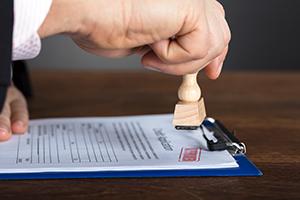
Amba Salelkar, a Chennai-based legal expert and disability rights activist, urges that the Government take steps to amend the laws relating to property rights, and introduce safeguards to ensure that persons with disabilities are not discriminated.
Persons with disabilities who are most likely to have problems when it comes to property are those who face greater restrictions in participation on account of impairments that affect their ability to understand, judge and communicate decisions. These are commonly referred to as ‘persons of unsound mind’. Under the Indian Contract Act, 1872, a person who is of ‘unsound mind’ is deemed incapable of entering a contract. A person is said to have a sound mind if, at the time of entering the contract, they are capable of understanding it and weighing its effect upon their interests. This can apply to able-bodied persons as well who temporarily find themselves unable to make the contract.
Property rights can be divided into two categories:
Inheriting and holding property
This is governed by the Indian Succession Act, 1925.
After the death of the owner of a property, the decision regarding who the property passed to depends on whether there was a valid will executed at the time of death or not. If a will was executed, the same has to be confirmed by a Court by way of ‘probate’. Probate is the copy of a will certified under the seal of a Court for action in accordance with its contents. Probate cannot be granted to a person who is of unsound mind. A person with a mental impairment can inherit property, however, the administration of the property will be granted to the Guardian of the person. If there is no Guardian, the Court can appoint one to act in the benefit of the person.
Buying and selling property
This is governed by the Transfer of Property Act, 1882 which is deemed to be an extension of the Contract Act. The assumption is that a person is of sound mind, and as such, a sale or purchase by a person with disability is valid, though it can be challenged in a Court. To avoid controversy, Registrars may refuse to register documents relating to property when they find a person who could be considered to be of unsound mind is doing it.
National Trust Act, 1999
Under the Rules of the National Trust Act, if any person with disability owns property recognized under the Act, it can be registered with the Local Level Committee to ensure that the person with disability is not taken advantage of while disposing of the property.
Impact of the Rights of Persons with Disabilities Act 2016
Under Section 13 of the Act, the State Government is to ensure that persons with disabilities have right, equally with others, to own or inherit property, both movable or immovable. For this, the Government needs to take steps to amend the laws relating to property rights, and introduce safeguards and procedures to ensure that persons with disabilities can deal with property on an equal basis with others including by making documents and procedures accessible, and recognizing support arrangements in making decisions.
Amba Salelkar is a Board Member at Equals Centre for Promotion of Social Justice, a disability rights advocacy organization. She has previously worked with Inclusive Planet Centre for Disability Law and Policy and prior to that, as a criminal lawyer in Mumbai with Raja Thakare & Chimalkar.

This article has been republished here in arrangement with Connect Special, a digital magazine, which provides solutions for challenges faced by people with disability.






